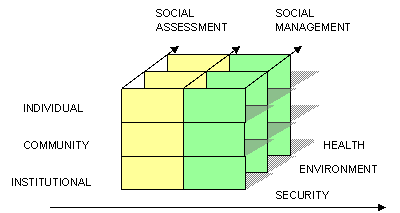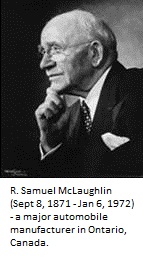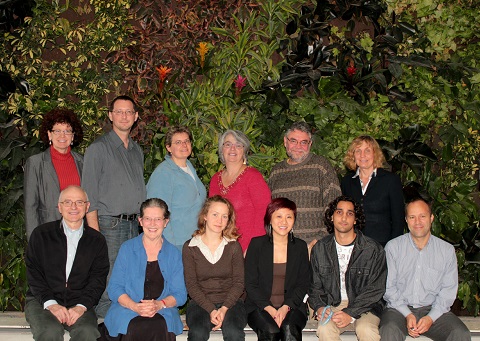Selected Research Projects
With uninterrupted funding for thirty years from the Social Sciences and Humanities Research Council (SSHRC), Dr. Lemyre’s work involves developing unique qualitative and quantitative methodologies for the subjective appraisal and contextual evaluation of social environment, especially with respect to stress, risk, adaptation and organizational learning, in either health or work settings. Dr. Lemyre’s interdisciplinary projects involve the major determinants of population health and their interaction, especially as they relate to Sense of Mastery, Uncertainty and Threat. The psychosocial aspects of public safety, public health, terrorism, emergency preparedness and psychosocial management of risks are at the core of her applied research program. For more information on the research thrust of the unit see below:
- Social Analysis of Risk: Security, Environment and Population Health
- Stress / Stress and Immunity
- Risk, stress and resilience: Individual, organization and community strategies mobilization
Current holder of:
Lead on
- E=MC2: Engagement=Mobilizing Communities and Collaboration
- Organizational Stress and Health
- Inter-Organizational Collaboration
- Risk Perception, Assessment, and Management
- Risk and Stress
- Stress and Social Environment in Population Health
Collaborator with
- EnRiCh Collaboration: Enhancing Resilience Among High-Risk Populations to Maximize Diaster Preparedness, Response, and Recovery, with Dr. T. O'Sullivan
- The Engineering of Organizational Resilience, with Dr. B. Robert
- PrioNet-NCE; Theme: Integrated Risk Management, with Dr. D. Krewski
- Enabling the SOS (Self-Organizing Security) Network, with Dr. P. Chouinard, Dr. M. Ulieru and Dr. A. Okros
- Establishing an Integrated National CBRNE Training System for Health, Psychosocial and Communication Responders
- Radiological/nuclear emergency response guidelines for vulnerable (at higher-risk) populations (children)
- Simulation Training and Exercise Collaboratory (SIMTEC): Enhancing Chemical, Biological, Radiological, Nuclear and Explosive (CBRNE) Capacity and Capability Management
- Caring About Healthcare Workers as First Responders: Enhancing Capacity for Gender-Based Support Mechanisms in Emergency Preparedness Planning
- Genetic Testing and Services, with Dr. B. Wilson et al.
- Developing International Transdisciplinary Knowledge Translation Collaboration, with Dr. J. Grimshaw
- Evidence-Based Practice Centre, with Dr. J. Grimshaw
- European Union Assessment of Vulnerability of Societies to RBC Terrorism
 Abstract
Abstract  Time
Time
 The general theoretical framework we developed is based on a
biopsychosocial model of stress that includes environmental parameters and individual processes of perception and coping with stressors. Developed outside the field of
psychopathology, this model is ideal for assessing psychological stress in primary care and population health research. The state of stress depends on the interaction
between an individual’s environment and his or her representation of that environment. It can result in physical or mental illness through the agency of
neuron-endo-immune mediators and depends on various structural or functional vulnerabilities. Stress disorders occur only as a result of stress of great intensity or
long duration or when other pathogenic processes are present. Psychological stress is, therefore, a hinge construct associated with both psychological phenomena and
factual parameters.
The general theoretical framework we developed is based on a
biopsychosocial model of stress that includes environmental parameters and individual processes of perception and coping with stressors. Developed outside the field of
psychopathology, this model is ideal for assessing psychological stress in primary care and population health research. The state of stress depends on the interaction
between an individual’s environment and his or her representation of that environment. It can result in physical or mental illness through the agency of
neuron-endo-immune mediators and depends on various structural or functional vulnerabilities. Stress disorders occur only as a result of stress of great intensity or
long duration or when other pathogenic processes are present. Psychological stress is, therefore, a hinge construct associated with both psychological phenomena and
factual parameters.  The R. Samuel McLaughlin Research Chair on the psychosocial aspects of risk on population health focuses on innovative transdisciplinary research regarding the role of
the social environment in the management of health.
The R. Samuel McLaughlin Research Chair on the psychosocial aspects of risk on population health focuses on innovative transdisciplinary research regarding the role of
the social environment in the management of health.  This research project examines how work
conditions affect stress and learning as well as ensuing individual and organizational health. The project encompasses:
This research project examines how work
conditions affect stress and learning as well as ensuing individual and organizational health. The project encompasses: To help protect and promote the well-being of Canadians in the context of
today’s information based society, globalization, new economy, technological advancements, and innovation pressures, the public service sector and the system of
government must perform its operations and management as a “learning organization”. Integrating information, innovating, inventing, initiating, coordinating, and
self-regulating all require healthy, open-minded, flexible and resilient senior executives, as well as structures and processes that facilitate adaptation,
decision-making and coordination.
To help protect and promote the well-being of Canadians in the context of
today’s information based society, globalization, new economy, technological advancements, and innovation pressures, the public service sector and the system of
government must perform its operations and management as a “learning organization”. Integrating information, innovating, inventing, initiating, coordinating, and
self-regulating all require healthy, open-minded, flexible and resilient senior executives, as well as structures and processes that facilitate adaptation,
decision-making and coordination.
 Research Using in Vivo Simulation of Meta-Organizational Shared Decision
Making (SDM), is one component of the Technology Innovation Fund (TIF) project that has been designed to assist in understanding the inter-organizational collaboration
challenges faced by the Canadian Forces (CF). The objective of the stream is to conduct basic research into shared decision making through the analysis of case studies,
exercises and simulations.
Research Using in Vivo Simulation of Meta-Organizational Shared Decision
Making (SDM), is one component of the Technology Innovation Fund (TIF) project that has been designed to assist in understanding the inter-organizational collaboration
challenges faced by the Canadian Forces (CF). The objective of the stream is to conduct basic research into shared decision making through the analysis of case studies,
exercises and simulations. This research program furthers our SSHRC work on psychological stress and
risk by examining in depth the concept of uncertainty, as well as its management, at the individual and community levels in order to enhance empowerment, personal and
collective sense of efficiency, adaptation, preparation, and resilience. The perception and the communication of uncertainty among the public, organizations, and
communities will be integrated into a general psychosocial risk management framework based on contemporary and applied hazards such as terrorism, environmental events,
and health risks.
This research program furthers our SSHRC work on psychological stress and
risk by examining in depth the concept of uncertainty, as well as its management, at the individual and community levels in order to enhance empowerment, personal and
collective sense of efficiency, adaptation, preparation, and resilience. The perception and the communication of uncertainty among the public, organizations, and
communities will be integrated into a general psychosocial risk management framework based on contemporary and applied hazards such as terrorism, environmental events,
and health risks.  The terrorism threat is a current risk and source of stress for
Canadians. This research project seeks to examine the psychological processes of the general public in managing the psychosocial aspects of the threat of terrorism. This
project aims to:
The terrorism threat is a current risk and source of stress for
Canadians. This research project seeks to examine the psychological processes of the general public in managing the psychosocial aspects of the threat of terrorism. This
project aims to: Following on the 2002-2005 Health Canada $250 000 project, this research program examines the factors shaping public perceptions of risk
and risk acceptability regarding health. Specifically, a psychosocial model for understanding the factors influencing attitudes and opinions about risk is being developed.
Established guidelines of risk acceptability is reviewed in detail, and psychosocial values underlying acceptability of risk examined. The project includes the creation
of commonsense benchmark risk scales to assist in understanding and communicating scientific information on health risks, particularly small risks difficult to identify
and comprehend.
Following on the 2002-2005 Health Canada $250 000 project, this research program examines the factors shaping public perceptions of risk
and risk acceptability regarding health. Specifically, a psychosocial model for understanding the factors influencing attitudes and opinions about risk is being developed.
Established guidelines of risk acceptability is reviewed in detail, and psychosocial values underlying acceptability of risk examined. The project includes the creation
of commonsense benchmark risk scales to assist in understanding and communicating scientific information on health risks, particularly small risks difficult to identify
and comprehend. Based on a previous CRTI project RD 02-0080 that yielded to the
Psychosocial Risk Assessment and Management (P-RAM) framework, the goal of this Technology Demonstration project is to transfer - via technology and multimedia - a bilingual
a user-friendly knowledge base to assist responders and planners in preparation, planning and response for CBRNE threats or attacks. Five components constitute the core of
our multimedia training package (PRiMer): a) a multimedia interactive session using computer-assisted teaching, b) the design and development of psychosocial oriented
exercises and tasks, c) preparation of a web-based self-study guide, d) provision of an on-line decision-support tool, and e) a one-day training session, sustainable over
time via a Train-the-Trainer component.
Based on a previous CRTI project RD 02-0080 that yielded to the
Psychosocial Risk Assessment and Management (P-RAM) framework, the goal of this Technology Demonstration project is to transfer - via technology and multimedia - a bilingual
a user-friendly knowledge base to assist responders and planners in preparation, planning and response for CBRNE threats or attacks. Five components constitute the core of
our multimedia training package (PRiMer): a) a multimedia interactive session using computer-assisted teaching, b) the design and development of psychosocial oriented
exercises and tasks, c) preparation of a web-based self-study guide, d) provision of an on-line decision-support tool, and e) a one-day training session, sustainable over
time via a Train-the-Trainer component.  With the emerging field of research on
Population Health comes the need for the social sciences to position themselves and consolidate their approach regarding the impact of social dynamics on health and
well-being. This research and development initiative will:
With the emerging field of research on
Population Health comes the need for the social sciences to position themselves and consolidate their approach regarding the impact of social dynamics on health and
well-being. This research and development initiative will:


